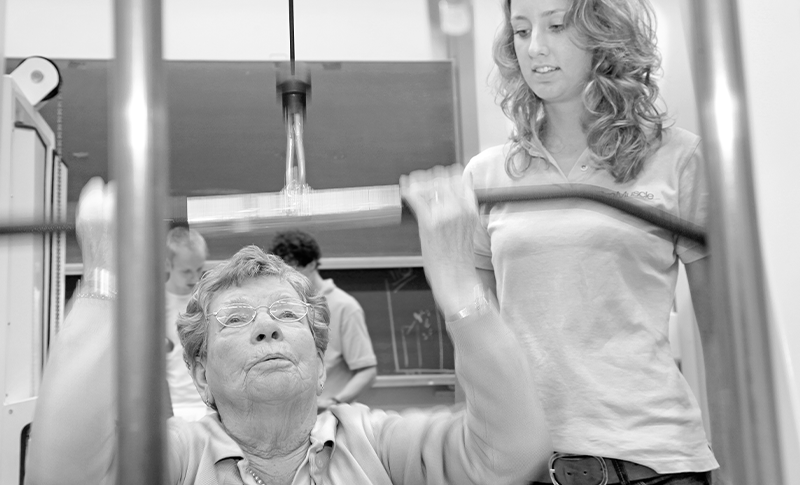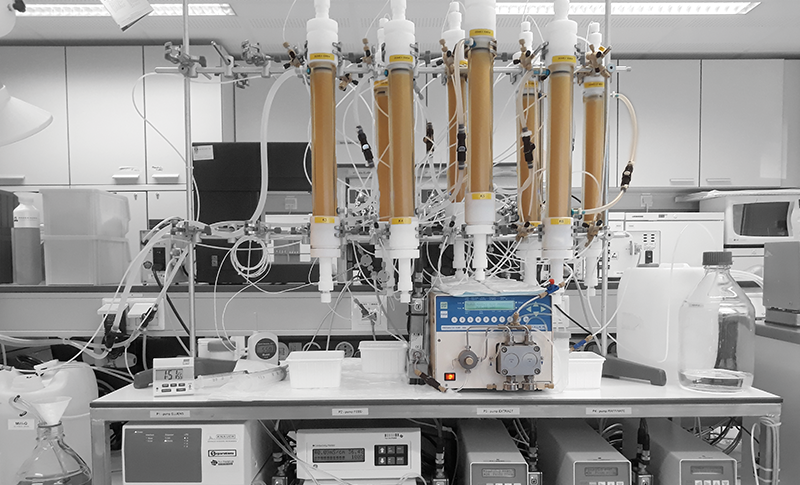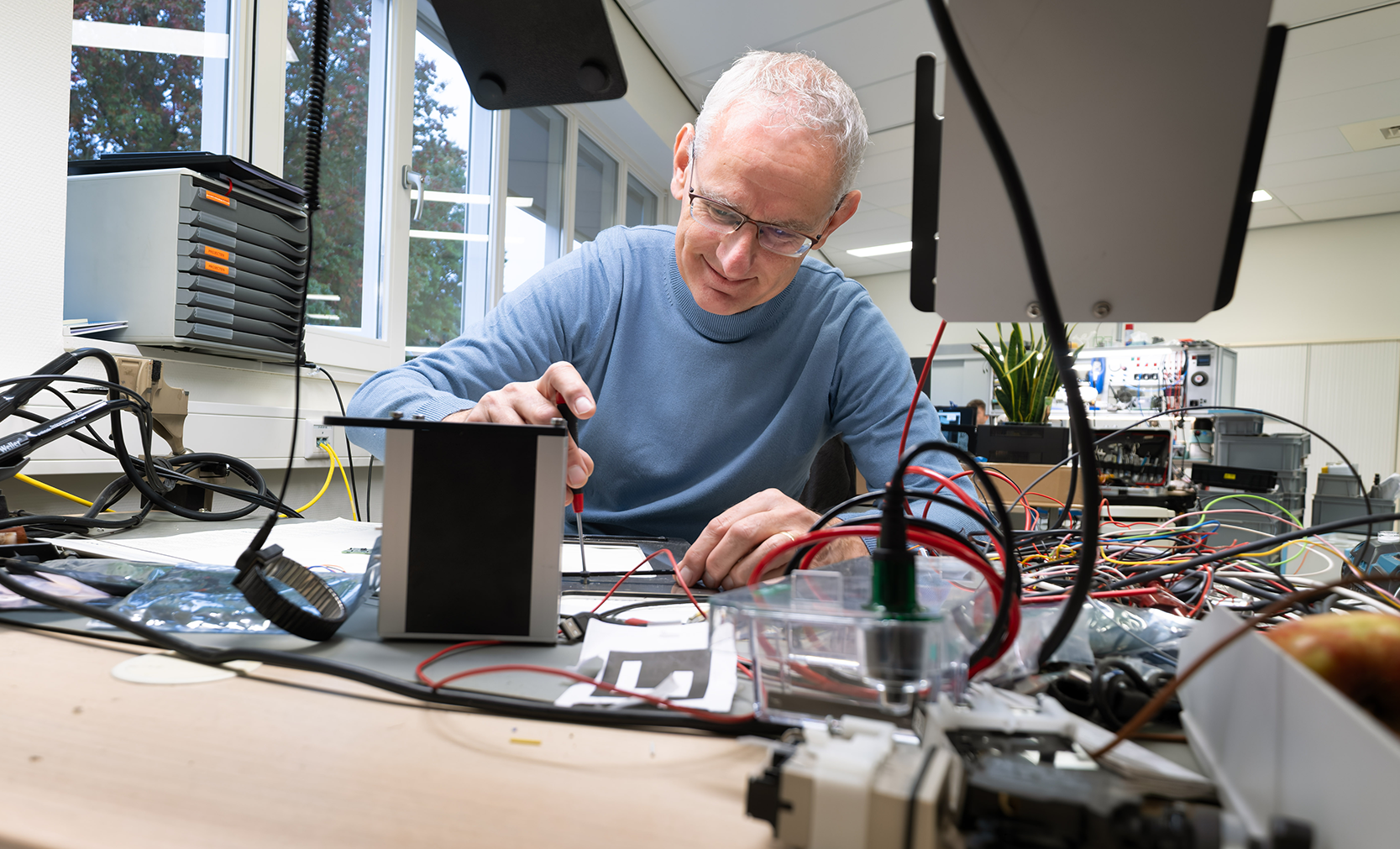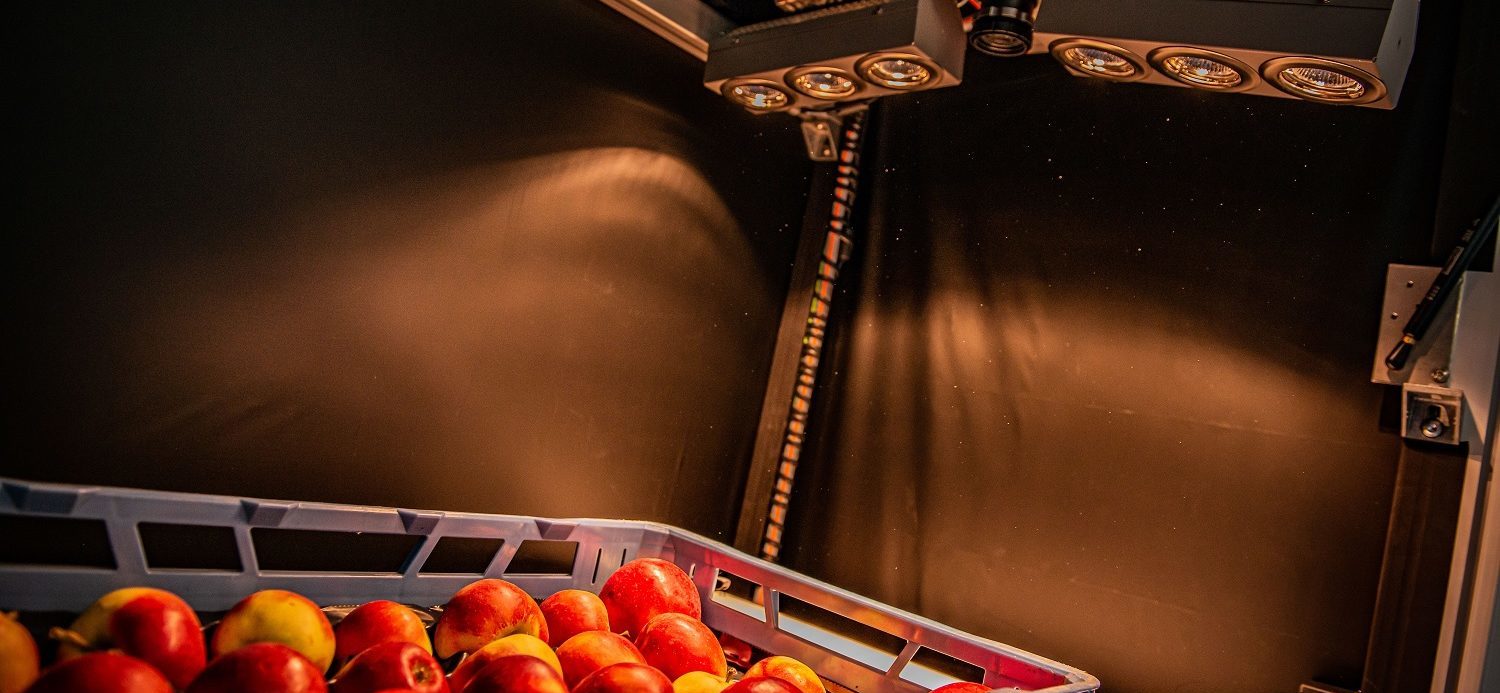Researchers hoping to have an impact on society with their knowledge often get stuck due to lack of funding, time and entrepreneurial skills. ‘I don’t think WUR is currently very well equipped for the commercial work.’
Floor Boon, a researcher at Wageningen Food & Biobased Research (WFBR) launched a project aiming at fruit juices with less sugar about 15 years ago. ‘My office-mate at the time had young children and was worried about their dental health. Fructose in fruit juices damages your tooth enamel. That is actually how our project started.’
Boon and her colleague’s research soon led to a successful technique for extracting the fructose and acids from orange juice. ‘We already had patents for similar technology because we had studied how to extract sugar from sugar beets. We then successfully applied that knowledge to orange juice.’
But 15 years ago no consumers – with the possible exception of that colleague with young children – were eager to be able to buy low-sugar orange juice, explains Boon. ‘The market wasn’t ready for it yet. Over the years, several producers expressed an interest but the problem was that no one was willing to pay for the production of juice for taste tests. And we couldn’t fund that ourselves.’
Not all researchers want to be entrepreneurs
Floor Boon, researcher at WFBR
To make juice for testing, the researchers have to start up their experimental apparatus all over again. ‘That costs time and money: cleaning the whole system and preparing the adsorption pipes, as well as carrying out microbial quality control so we can have the juices tested safely. Once everything’s up and running, we can make about five litres of juice per day.’ That is enough to run three tasting sessions for interested parties. ‘The point was really the starting costs, which we had no money for.’
Right moment
Boon and her colleagues recently got money to make new juice from WUR’s Road to Innovation grant. ‘That money came through the Value Creation department, and businesses came to our tasting sessions through them too. The juice producers reacted positively to the quality. Now that a sugar tax is in the pipeline and the Nutri-Score has been introduced, it’s the right moment to revive this technology.’
Although Boon is pleased about this step, she is fed up with how long the process has taken. ‘WUR needs to be better equipped for taking research to the market. That way, ideas can more easily take root in society and a researcher is not left frustrated. It ought to be more logical to follow up on research like this. What you’re aiming at is for a business or an innovative organization to take over your work and upscale your idea, because not all researchers have an entrepreneurial mindset or want to go into business.’
Sluggish
Associate professor of Consumption and Healthy Lifestyles Annemien Haveman-Nies shares the frustration with the sluggishness of such processes. Haveman-Nies is the driving force behind the implementation of ProMuscle, a lifestyle programme started and further developed at WUR. ‘Professor Lisette de Groot saw in 2013 that a resistance training programme in combination with a certain amount of dairy protein in the diet was effective for increasing muscle strength in the elderly – in a controlled clinical setting. In follow-up research, we got the programme ready for application in a real-life setting.’
Haveman-Nies and her colleagues demonstrated that this practice-based intervention, guided by external physiotherapists and dieticians, was also effective for boosting muscle strength in elderly people. On the basis of these results – and extensive consultation with the Value Creation department, the programme was then included in the intervention database of the National Institute for Public Health and the Environment (RIVM). ‘But that’s not the end of the story,’ explains Haveman-Nies. ‘What it means is that from then on, Wageningen University is the owner of this intervention and must provide training for professionals, issue and renew licences and maintain the programme. Quite a job. We couldn’t have done it by ourselves, but luckily our colleagues at Wageningen Academy stepped into the breach.’

‘The tricky thing with the ProMuscle intervention is that it targets disease prevention. There are hardly any short-term benefits,’ says Haveman-Nies. ‘When people get fitter, it reduces health care costs. So it would be logical for health insurance companies to contribute, but that hardly even happens.’
Sourcing funding is time-consuming and frustrating
Annemien Haveman-Nies, associate professor of Consumption and Healthy Lifestyles
Haveman-Nies is pleased that so far, the project always managed to get subsidies in time from companies or government bodies. ‘But looking for funding is very time-consuming and frustrating, which makes it hard to keep everyone motivated.’
Motivation
Berber Dorhout has been involved in ProMuscle for over seven years now. ‘At first, I really liked it and I wanted to do a lot for it. Now that I keep coming up against closed doors, that is harder.’ Dorhout got her PhD in 2021, building on the research results of previous PhD candidates examining ProMuscle. She is now working at HU University of Applied Sciences in Utrecht, where she works on the implementation of the muscle programme alongside her research on behaviour change.
If I see that other parties do succeed with similar projects, my heart sometimes sinks
Berber Dorhout, obtained her PhD in 2021 for her research on ProMuscle
‘When I see that other parties do manage to reach the implementation phase with similar projects, my heart sinks. We really did develop something good, which a lot of people are enthusiastic about. The scientific evidence is strong and there is a lot of practice-based evidence that our intervention works for keeping elderly people fit for longer. But it is a stumbling block that ProMuscle isn’t even partially covered by their health insurance.’
Dorhout sees some glimmers of hope, though. ‘Since we’ve been offering a training day through Wageningen Academy, there’s been more response. I hope that will spread like an oil slick.’ The researchers use the money people pay for the training to implement the intervention more widely. Haveman-Nies: ‘I would prefer it to be even bigger, but I am also proud of what we can offer now.’
Help with the business side
‘These examples are very familiar,’ says Brechtje Vreenegoor, manager of the Knowledge Transfer Office (part of the Value Creation department). ‘It is our task to help scientists have a social impact with the knowledge obtained from their research. Our department has doubled its staff in the past year, but I still often hear that people are not aware of our existence.’ And Vreenegoor can imagine that: ‘You often only look for us if you need support. But we can also help with obtaining financing, for example through further development or applying for a patent. So it doesn’t always have to be your ambition to become an entrepreneur.’
‘We help people break down the big step from research to enterprise into smaller steps. One option is to hand the innovation over to an existing company. But if that doesn’t work out, the only other option is to start up a company yourself.’
In my experience, scientists are very modest
Brechtje Vreenegoor, manager of the Knowledge Transfer Office (part of the Value Creation department)
But not every researcher wants to be an entrepreneur. ‘There is certainly a tension there. If you have a good idea, the first question is whether you want to take on the work of running a business. The next question is how much time you have, since this comes on top of your current work. If a scientist has a stab at entrepreneurship but then realizes he or she prefers to work in the lab, I still consider the process a success. At least we’ve tried, although a researcher might feel differently about that.
‘If you ask me, WUR is not doing badly on the entrepreneurship front. We get two to three spin-off companies per year, which is par for the course for a knowledge institution. But there is certainly room for improvement. Anyway, you can never guarantee that your project will successfully take root in society, even if you go through all the hoops successfully.
‘In my experience, scientists are very modest and often don’t even realize what a brilliant idea they’ve got. And I hope that the new Rewards & Recognition programme will stimulate researchers’ enterprising side.’

 The experimental apparatus Floor Boon and colleagues use to extract fructose and acids from orange juice. Photo Wageningen Food & Biobased Research
The experimental apparatus Floor Boon and colleagues use to extract fructose and acids from orange juice. Photo Wageningen Food & Biobased Research 

